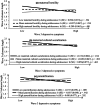The association of depressive symptoms and telomere length among Mexican-origin youth: How it varies by family environment
- PMID: 40551485
- PMCID: PMC12186014
- DOI: 10.1111/jora.70047
The association of depressive symptoms and telomere length among Mexican-origin youth: How it varies by family environment
Abstract
Telomere length is an important indicator of aging and related diseases. Identifying risk and protective factors for telomere shortening early in life among youth from Mexican immigrant families is critical for reducing ethnic health disparities. This study investigates how familial environmental factors (i.e., culture-general and culture-specific parenting and parentification experiences) shape individual differences in the association between depressive symptoms and telomere length. Adolescents from immigrant families (n = 325; Mwave1.age = 12.81) self-reported their perceptions of maternal hostility, warmth, cultural socialization, and parentification experiences across three waves during adolescence, as well as depressive symptoms in late adolescence (Mwave3.age = 17.61). Youth also provided dried blood spots for telomere length assessment at Wave 3. Moderation models were conducted in Mplus 8.3 with basic sociodemographic variables and BMI controlled. Maternal hostility, cultural socialization, and parentification during adolescence, but not maternal warmth, were critical family context factors impacting biological (i.e., telomere length) responses to depressive symptoms. Higher depressive symptoms were related to shorter telomere length in late adolescence only for youth who experienced high levels of maternal hostility, lower cultural socialization, or lower parentification experiences during adolescence. This study highlights the importance of cultivating cultural assets through culturally specific parenting and family experiences during adolescence, demonstrating their role in mitigating the link between depressive symptoms and accelerated cellular aging as shown by telomere length.
Keywords: Mexican immigrant family environment; depressive symptoms; telomere length.
© 2025 The Author(s). Journal of Research on Adolescence published by Wiley Periodicals LLC on behalf of Society for Research on Adolescence.
Conflict of interest statement
The authors declare no competing interests.
Figures

Similar articles
-
Cultural stress, parenting practices, and mental health among Mexican-origin mothers and adolescents: A dyadic approach.Dev Psychol. 2025 Jul;61(7):1292-1305. doi: 10.1037/dev0001954. Epub 2025 Apr 7. Dev Psychol. 2025. PMID: 40193467
-
The role of optimism, connectedness, and neighborhood collective efficacy as moderators of harsh parenting on telomere length.Psychoneuroendocrinology. 2025 Apr;174:107373. doi: 10.1016/j.psyneuen.2025.107373. Epub 2025 Jan 28. Psychoneuroendocrinology. 2025. PMID: 39978211 Free PMC article.
-
Incentives for preventing smoking in children and adolescents.Cochrane Database Syst Rev. 2012 Oct 17;10:CD008645. doi: 10.1002/14651858.CD008645.pub2. Cochrane Database Syst Rev. 2012. Update in: Cochrane Database Syst Rev. 2017 Jun 06;6:CD008645. doi: 10.1002/14651858.CD008645.pub3. PMID: 23076949 Updated.
-
Parenting and family life experiences of mothers diagnosed with schizophrenia within Chinese cultural context.J Psychiatr Ment Health Nurs. 2024 Aug;31(4):628-638. doi: 10.1111/jpm.13011. Epub 2024 Jan 9. J Psychiatr Ment Health Nurs. 2024. PMID: 38193279
-
Incentives for preventing smoking in children and adolescents.Cochrane Database Syst Rev. 2017 Jun 6;6(6):CD008645. doi: 10.1002/14651858.CD008645.pub3. Cochrane Database Syst Rev. 2017. PMID: 28585288 Free PMC article.
References
-
- Calzada, E. , Gabriela, B.‐G. R. , Keng‐Yen, H. , & Brotman, L. (2017). Early childhood internalizing problems in Mexican‐ and Dominican‐origin children: The role of cultural socialization and parenting practices. Journal of Clinical Child & Adolescent Psychology, 46(4), 551–562. 10.1080/15374416.2015.1041593 - DOI - PMC - PubMed
-
- Costandi, M. (2016). Neuroplasticity. MIt Press.
MeSH terms
Grants and funding
- 1651128/National Science Foundation
- 0956123/National Science Foundation
- 1R21MD012706-01A1/MD/NIMHD NIH HHS/United States
- 3R21MD-012706-02S1/MD/NIMHD NIH HHS/United States
- 5R03HD060045-02/Eunice Kennedy Shriver National Institute of Child Health and Human Development
- 2P2CHD042849-21A1/Eunice Kennedy Shriver National Institute of Child Health and Human Development
- 2T32HD007081-46A1/Eunice Kennedy Shriver National Institute of Child Health and Human Development
- 2699/Russell Sage Foundation
- 10023427/Spencer Foundation
- JRG-102/Hogg Foundation for Mental Health
- Office of the Vice President for Research and Creative Grant and Special Research Grant from the University of Texas at Austin
- College of Natural Sciences Catalyst Grant from the University of Texas at Austin
- 1K99MD019319/MD/NIMHD NIH HHS/United States
LinkOut - more resources
Full Text Sources
Medical
